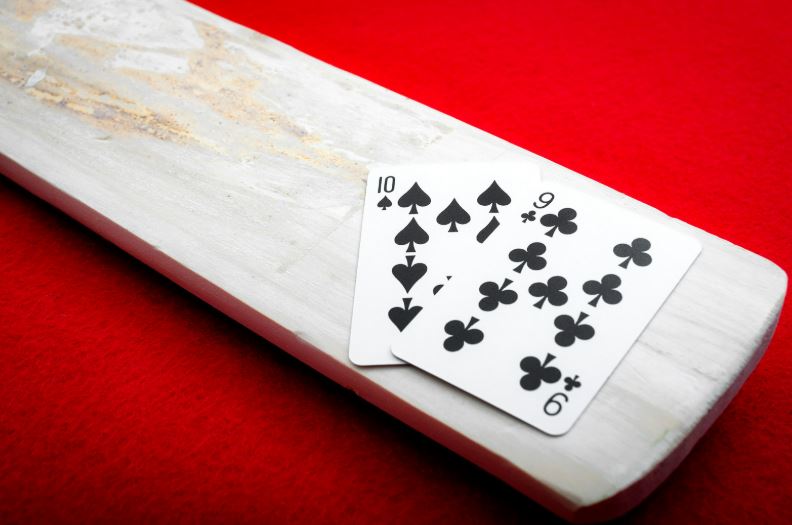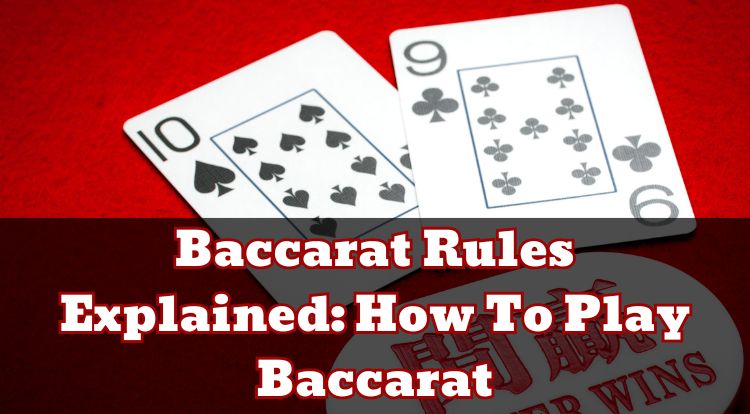Baccarat vs Poker: Which Casino Game Is Right for You?
Deciding between baccarat and poker can feel tricky if you are new to casino games. Both are well known in the UK and each one plays very differently once the cards are on the table.
Online casinos often offer several versions of each game, so it could help to browse what is available and read the rules before you start. Read on to see how these classics compare and find the one that fits how you like to play.
What Makes Baccarat and Poker Different?
Baccarat and poker stand apart in how much you are involved during a round. In baccarat, your role is to place a bet on which hand, the player or the banker, will finish closest to nine, or whether the round will end in a tie. After that, the dealing follows fixed rules and there are no in-round decisions for you to make.
Poker is more interactive. You use your cards to form combinations and respond to other players through betting. Variants such as Texas Hold’em and Omaha are common, and while they share the same hand rankings, the way cards are dealt and the flow of each round can differ.
Players should always remember to gamble responsibly and within their means- never wager more than you can afford to lose.
How Do You Play Baccarat?

Baccarat begins with a simple choice: bet on the player hand, the banker hand, or a tie. Two cards are dealt to each hand. Number cards keep their face value, aces count as one, and tens and picture cards count as zero.
Totals are calculated by adding the card values and keeping only the last digit. A 7 and an 8 add to 15, which counts as 5. If either hand reaches eight or nine with the first two cards, that is called a natural and the round usually ends there. Otherwise, a third card may be drawn automatically according to preset rules. You do not choose when that happens and you do not handle the cards.
Your aim is simply that the hand you backed finishes closer to nine than the other. Payouts are set by the game’s paytable. Banker bets typically include a small commission on wins, which is why the figures you see for house edge vary between the three main bet types. Some tables also offer side bets, but these usually carry a higher house edge than the core options.
You will find versions such as Punto Banco, mini baccarat and live dealer tables. They follow the same fundamentals described above, with small differences in features or limits. A quick look at the on-screen rules and paytable could show you what is specific to the table you choose.
How Do You Play Poker?

Poker is played against other people rather than against the house. In games like Texas Hold’em and Omaha, each player receives private cards that combine with shared community cards to make a five-card hand. The goal is to hold the strongest hand at showdown or to win earlier if others fold.
Rounds are structured into betting stages. Players can check, bet, call, raise or fold depending on the situation. The decisions you make reflect the strength of your cards, what the community cards allow, and how the table is behaving. That blend of information is why the same hand can be played differently from one round to the next.
A standard 52-card deck is used and hand rankings run from high card up to a royal flush, the highest straight in one suit. Live dealer tables and software-based games both follow the same principles, though the pace and presentation can feel different.
Play Slots & Online Casino Games
Baccarat vs Poker Odds and House Edge
Baccarat has set probabilities. A typical banker bet carries a house edge of about 1.06 percent, reflecting the usual commission on banker wins. A player bet is around 1.24 percent. Tie bets sit much higher at roughly 14.36 percent. In other words, the return to player for banker and player bets exceeds 98 percent, while tie bets return far less over time.
Poker works differently because you are competing with other players. There is no fixed house edge on your hand. Instead, the operator takes a rake, which is a small percentage of the pot or a fixed fee per hand or tournament. The exact rake structure varies by game and stakes, and it affects how profitable a table feels. Long-term results in poker are influenced by the decisions made at the table, the mix of players, and the rake in play.
UK Gambling Commission (UKGC)-licensed online rooms and tables display paytables and rake information so you can see the details before you join.
Who Should Choose Baccarat?
Baccarat suits players who enjoy a clear, streamlined experience. You make your selection before the cards are dealt, and the rest is handled by the dealer or software. Hands are quick, and your role stays consistent from one round to the next.
That simplicity could be appealing if you want a game where you are not weighing up new decisions every few seconds. It also helps if you prefer to focus on table limits, paytables and pacing rather than on reading opponents. If you like the feel of a real table, live dealer baccarat adds the presentation and rhythm of a studio environment, while mini baccarat keeps things compact and often uses lower minimums.
Spending a moment to review the table rules and limits might help you find a version that fits how you like to play.
Who Should Choose Poker?
Poker is a good fit for those who enjoy decision-making, table awareness and adapting to changing situations. Every round gives you choices, from staying in to raising or folding, and the best move can shift as new community cards arrive and players react.
Many also enjoy the social and competitive element. Cash games let you join and leave within the table’s rules, while tournaments run to a structure with blinds that increase over time and a set finishing point. Both formats reward learning hand ranges, paying attention to position, and managing your resources sensibly.
Because poker involves other people, no two tables feel the same. Trying different variants and stakes could potentially help you find the pace and depth that feel comfortable.
Play Casino Games Online at Red Casino
If you want to explore online casino games in a regulated setting, Red Casino offers a broad choice for new and experienced players. You can dip into well-known titles like baccarat and poker, plus many other classics and newer releases, all with clear rules and paytables to review before you play.
We are licensed and regulated by the UKGC, with secure payment methods and games that meet national standards for fairness. Our support team is on hand to help with registration, deposits and any game questions. You will also find tools such as deposit limits, time reminders and self-exclusion to help you manage your activity.
Whether you prefer the straightforward rhythm of baccarat or the decision-making of poker, you can compare both at Red Casino and choose the tables that suit you best.
**The information provided in this blog is intended for educational purposes and should not be construed as betting advice or a guarantee of success. Always gamble responsibly.
*All values (Bet Levels, Maximum Wins etc.) mentioned in relation to these games are subject to change at any time. Game features mentioned may not be available in some jurisdictions.
































































